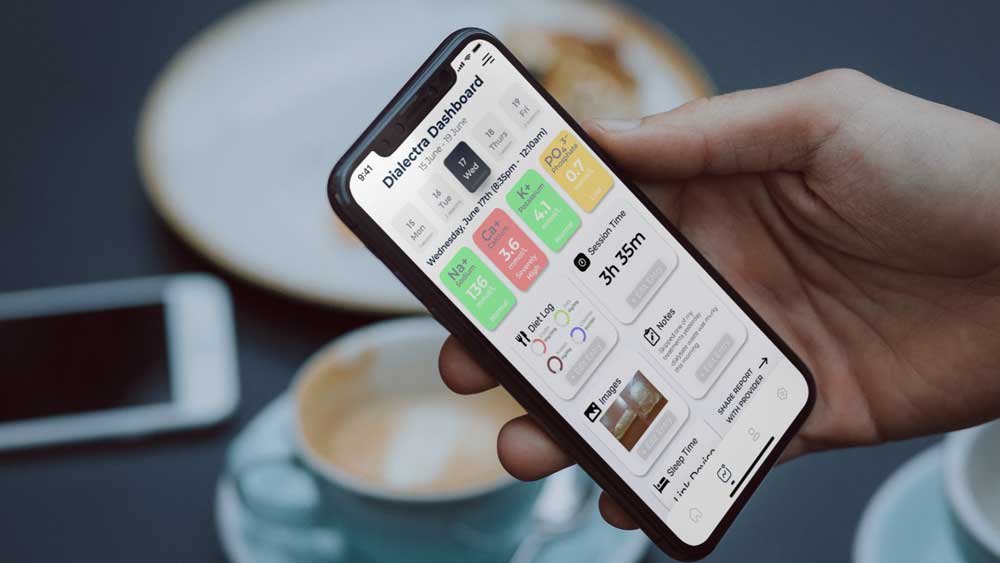
Biomedical engineering former student Jacob Powell ’21 and his partner Jared Hill, a senior biology student at Texas A&M University, earned first place at the Raymond Ideas Challenge with their invention Dialectra™ for peritoneal dialysis patients. They also won the Institute of Electrical and Electronics Engineers (IEEE) Sensors Council Impact Award and have completed the National Science Foundation's Innovation Corps Site (I-Corps Site) program with their new product.
Peritoneal dialysis is a treatment that uses abdomen lining to filter blood inside the body to remove excess fluid and correct electrolyte problems. It is done once to multiple times a day to manage kidney failure. The excess fluid is typically disposed of, but Powell had the idea to use it for diagnostic purposes.
“Jared and I were in SlingHealth, a student biotech incubator,” said Powell. “I was in the dialysis group and learned about peritoneal dialysis and about the issues that peritoneal dialysis patients face. I used that information along with my undergraduate research in paper-based microfluidics to come up with Dialectra™.”
Peritoneal dialysis patients face challenges with their ability to monitor their electrolyte levels at home. This issue results in physicians having difficulty creating treatment plans and patients experiencing the negative effects of being in a prolonged state of electrolyte imbalance. Dialectra™ aims to better inform its users with a rapid diagnostic electrolyte sensor connected to the drainage system. The sensor changes colors based on the concentration of electrolytes in the patient’s dialysis fluid and is paired with a patient's smartphone through an application that creates a database of personalized electrolyte data.
“With Dialectra™, we’re enabling patients to better manage their electrolyte levels by providing personalized electrolyte data on a daily basis,” said Powell. “This allows them to make informed lifestyle and treatment adjustments based on their current health status.”
Powell and Hill took advantage of the many resources the College of Engineering offers for students with entrepreneurial mindsets and participated in the Engineering Entrepreneurship Program, which encourages students to be innovative, discover new skills and launch ideas into reality. Specifically, the duo completed the I-Corps Site program, where they were able to move their product from the lab into the market by undergoing intensive customer discovery, the initial process of understanding customers’ needs.
“I-Corps Site really forces you to dig into your product,” said Hill. “You have to be knowledgeable about your product when interviewing people, so it forces you to understand the problem you are trying to address and what exactly your solution is. It really helped us gather opinions from nephrologists, doctors, engineers and patients, which we wouldn’t have been able to do without I-Corps Site. It made us more efficient.”
Powell credited I-Corps Site for helping them win the Raymond Ideas Challenge and the IEEE Impact Award, as the program prepared them for any potential problems and solutions about the product. This helped Powell present it well.
“If I were to highlight someone, it would be Rodney Boehm, associate professor of practice and member of the Engineering Entrepreneurship Program,” said Hill. “He helped force me to really understand our problem and understand what value we are bringing to our customer base. He helped us learn the importance of telling a story in layman's terms because most of the time, we are not pitching our product to a physician — we are pitching it to a group of random judges who may not have experience in this field.”
Powell is currently in medical school at Texas A&M, and Hill is planning to attend medical school starting in the fall of 2023. They hope to have the final prototype ready to be submitted in early 2023 for Small Business Innovation Research grants, a seed funding for startups and small businesses in technology areas.